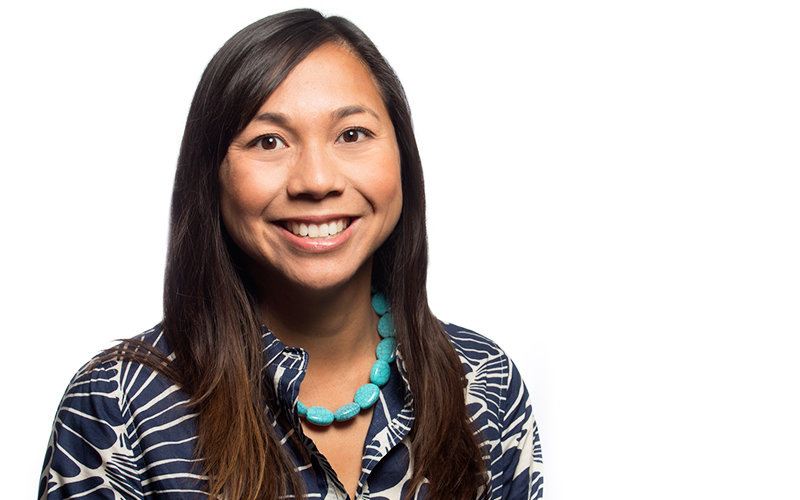
Growing up in a family of health professionals, Michelle C. Ramos gravitated early on to the field of child and family health.
Ramos, who joined CSUF last fall as an assistant professor of child and adolescent studies, holds a doctorate and master’s degree in clinical psychology from USC, a master’s degree in psychology from CSUF and a bachelor’s degree in science pre-professional studies and psychology from the University of Notre Dame.
What inspired you to go into the field of child and adolescent studies?
I grew up around my mother’s pediatrics practice — literally doing my homework in her office after school and helping out at the front desk — so from an early age I was exposed to family processes and children’s health. Later, during college, I became more interested in how youth develop in the context of family conflict and violence from a clinical science perspective, inspired by my volunteer work with mothers and their children who survived domestic violence.
What are your research interests?
My research primarily focuses on child and adolescent development within the family context, with an emphasis on youths’ vulnerability versus resilience to family stress, conflict and violence. I am particularly interested in the intergenerational connection between family aggression and youths’ own conflict and aggression in peer and romantic relationships, with a focus on conflict via electronic/social media.
I also investigate the impact of positive family relationships on youths’ functioning through the Fullerton Longitudinal Study, a 38-year longitudinal examination of child development.
How do you engage students in your classes and/or research?
I draw connections between the theoretical concepts we are studying and the real world. I may show films or video excerpts that inspire some reflection or bring in relevant print or online news and magazine articles that highlight the topics we are covering.
I also invite students to draw upon their own diverse experiences and apply what they are learning to their own contexts. I think we all enjoy the learning process more when all students are involved and working together.
What changes do you envision in your field five years from now?
I hope that there will be continued collaboration across disciplines to understand and promote youths’ resilience to conflict and violence exposure and to foster positive family relationships. Drawing from clinical science, developmental psychology, neuroscience, endocrinology and other fields will allow us to harness our knowledge for improved intervention and quality of life for at-risk children.
Name one thing you do to stay healthy.
Although the pace of the academic year can get hectic, I find time to be with my husband and children and enjoy the little things — driving them to their activities, volunteering in the classroom, playing at the beach, watching movies — this refreshes me and helps me keep a balanced approach to life.